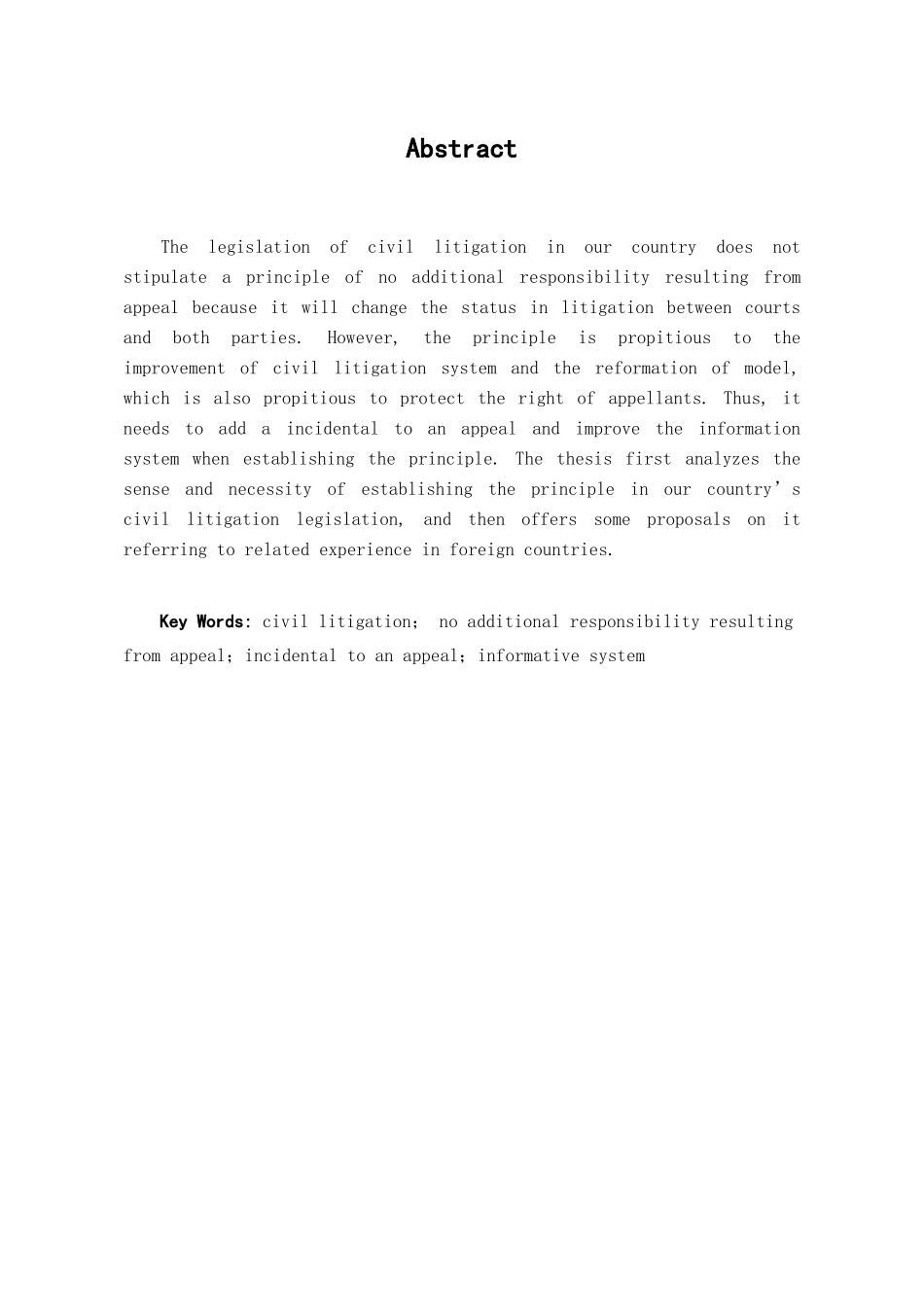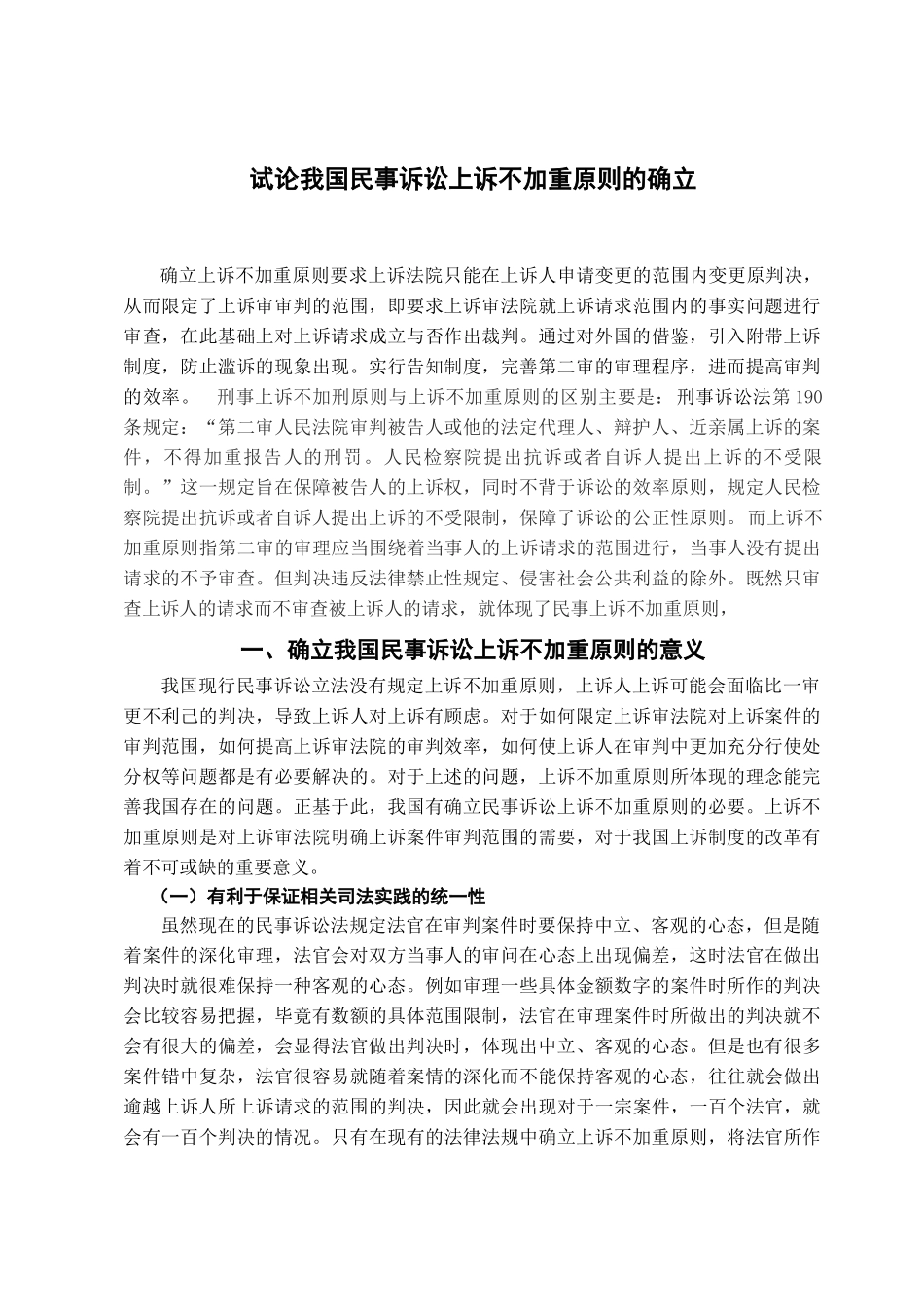AbstractThe legislation of civil litigation in our country does not stipulate a principle of no additional responsibility resulting from appeal because it will change the status in litigation between courts and both parties. However, the principle is propitious to the improvement of civil litigation system and the reformation of model, which is also propitious to protect the right of appellants. Thus, it needs to add a incidental to an appeal and improve the information system when establishing the principle. The thesis first analyzes the sense and necessity of establishing the principle in our country’s civil litigation legislation, and then offers some proposals on it referring to related experience in foreign countries.Key Words: civil litigation; no additional responsibility resulting from appeal;incidental to an appeal;informative system试论我国民事诉讼上诉不加重原则的确立 确立上诉不加重原则要求上诉法院只能在上诉人申请变更的范围内变更原判决,从而限定了上诉审审判的范围,即要求上诉审法院就上诉请求范围内的事实问题进行审查,在此基础上对上诉请求成立与否作出裁判。通过对外国的借鉴,引入附带上诉制度,防止滥诉的现象出现。实行告知制度,完善第二审的审理程序,进而提高审判的效率。 刑事上诉不加刑原则与上诉不加重原则的区别主要是:刑事诉讼法第 190条规定:“第二审人民法院审判被告人或他的法定代理人、辩护人、近亲属上诉的案件,不得加重报告人的刑罚。人民检察院提出抗诉或者自诉人提出上诉的不受限制。”这一规定旨在保障被告人的上诉权,同时不背于诉讼的效率原则,规定人民检察院提出抗诉或者自诉人提出上诉的不受限制,保障了诉讼的公正性原则。而上诉不加重原则指第二审的审理应当围绕着当事人的上诉请求的范围进行,当事人没有提出请求的不予审查。但判决违反法律禁止性规定、侵害社会公共利益的除外。既然只审查上诉人的请求而不审查被上诉人的请求,就体现了民事上诉不加重原则,一、确立我国民事诉讼上诉不加重原则的意义我国现行民事诉讼立法没有规定上诉不加重原则,上诉人上诉可能会面临...


